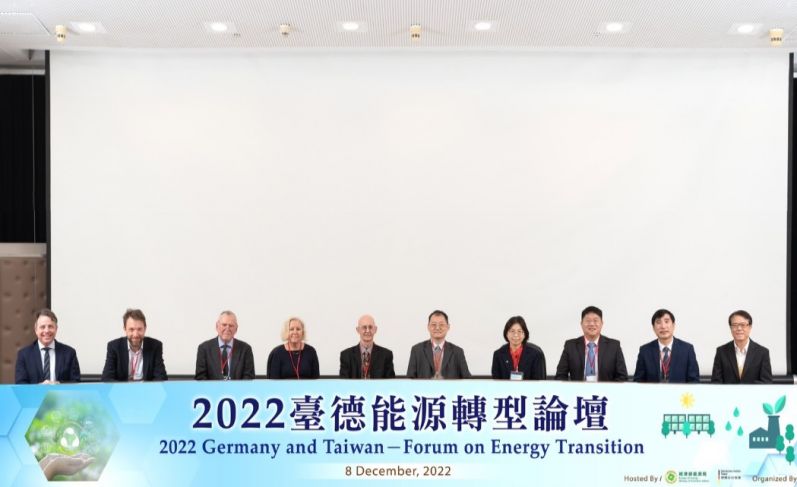Taiwan, Germany stage energy transition forum
2022/12/12
Taiwan and Germany held a joint forum on energy transition Dec. 8 in Taipei City, spotlighting the two sides’ commitment to fostering collaboration in the energy sector.
Co-organized by the Bureau of Energy under the Ministry of Economic Affairs and German Institute Taipei, the daylong event involved discussions on relevant policies and highlighted the importance of hydrogen power generation and the development of energy storage systems.
High-profile participants included Wu Chih-wei, BOE counselor; Jorg Polster, director general of GIT; Ursula Borak, deputy director general for International Energy Affairs, Fossil Fuels and Nuclear Energy at the German Federal Ministry for Economic Affairs and Energy; and over-200 academics, business representatives, experts and officials.
According to the BOE, Taiwan has made great strides in renewable energy since 2016 and in March released policy detailing the country’s pathway to net-zero emissions by 2050. Taiwan and Germany have been working together to achieve this goal since the 2016 signing of the Joint Declaration of Intent on Cooperation in the Field of Energy Transition, the bureau added.
Taiwan encourages the energy and industry sectors to use hydrogen power in processes like steelmaking to reduce carbon emissions, the BOE said, adding that the country aims to set up 1.5 gigawatts of battery energy storage systems by 2025.
The government will continue energy cooperation with Germany in areas spanning policy, technology applications and trade, while jointly tackling challenges to achieve net-zero emissions and promote a stable and diversified partnership between the two sides, the bureau said.
The green and renewable energy industry is a key part of the government’s six core strategic industries initiative. Unveiled by President Tsai Ing-wen during her inauguration address in May 2020, industries included in the initiative are information and digital technology; cybersecurity; biotech and medical technology; national defense; and strategic stockpiles.
Source: Taiwan Today (https://taiwantoday.tw/index.php)












